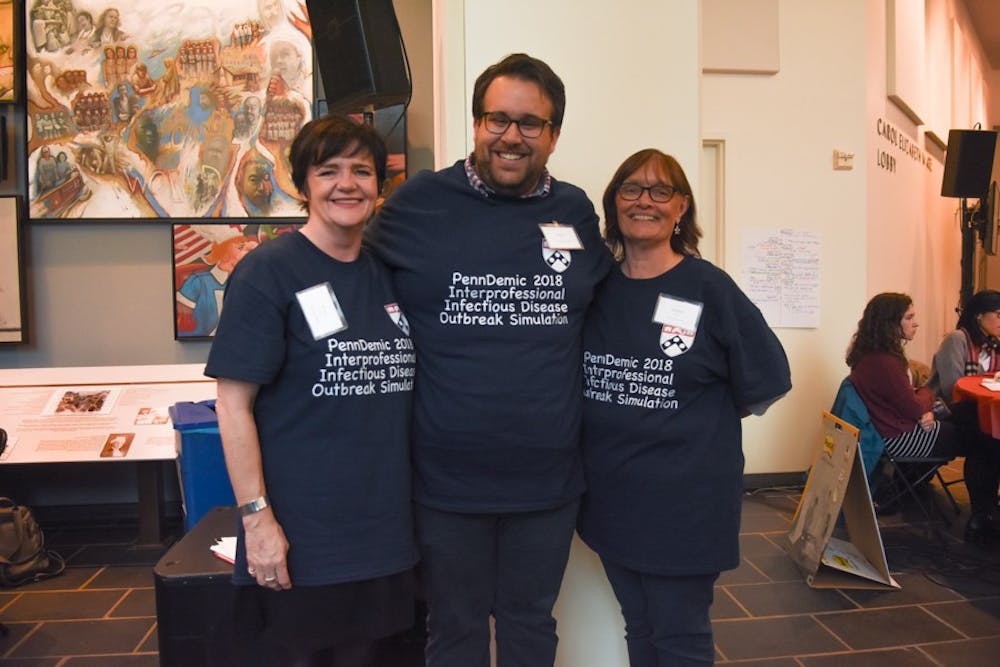Seventy hopeful healthcare professionals crowded into Penn’s Claire Fagin Hall to combat an outbreak of the plague on Saturday. The outbreak, which had started in Washington D.C., threatened to stretch to Philadelphia.
The scenario was a simulation entitled PennDemic 2018: An Interprofessional Infectious Disease Outbreak Simulation for Penn Students. It sought to impress upon the graduate student attendees the importance of interdisciplinary work in containing a large-scale medical crisis.
The eight-hour event was the first of its kind on Penn’s campus and took more than a year of planning on the part of members of the University’s extended healthcare community. Event organizers selected the participants after a short application process.
The graduate students were split into small groups in which each member represented the contributions of their respective discipline. The organizers provided the attendees with real-time updates on the status of the crisis. The students had to respond with policies and actions to limit the spread of the outbreak and address public concerns.
Experts from the Centers for Disease Control and Prevention, the Federal Bureau of Investigation, and the Pennsylvania Department of Health gave presentations concerning their roles in outbreak prevention and the need for interdisciplinary cooperation in curtailing healthcare emergencies.
National security expert Bonnie Jenkins, who served as the coordinator for threat reduction programs in the Bureau of International Security and Nonproliferation for the Department of State, was also in attendance. Jenkins was a visiting fellow at the Perry World House and Brookings Institution in 2017.

“We want participants to think about what would happen if the scenario came true,” Jenkins said of the event’s purpose. “What would their role be? How would they apply their knowledge?”
RELATED:
Penn Medicine selected to research medical marijuana
Penn Perelman prof. leads research on fertility preservation in childhood cancer survivors
She emphasized the importance of participants interacting with current experts who would be called upon in the event of an outbreak.
Deborah Becker, a member of the planning committee and nursing professor, explained that the inspiration for the event stemmed in large part from a speech Jenkins delivered at the Pandemic Risk: A Threat to Global Health Security symposium in November 2017, in which she discussed the importance of improving standards of infectious disease prevention and containment.
Becker noted that she hoped the event would educate students about the collaboration necessary to respond to such an event.
“The hope is that students not only learn about infectious disease outbreak prevention but also begin to consider careers within the field,” Becker said.
Shelley Rankin, another member of the planning committee and veterinary professor, noted that participants were engaged and very receptive through the day and said she was impressed by the students’ cooperation throughout the event.
Rankin added that the planning committee intentionally chose the plague as the disease for the simulation because it is well-known and fairly well-understood, meaning that students could focus on the collaborative aspect of the response.
While the event was only open to graduate students this year, Becker said she hopes PennDemic will become an annual event in which both undergraduates and graduates can participate in.









